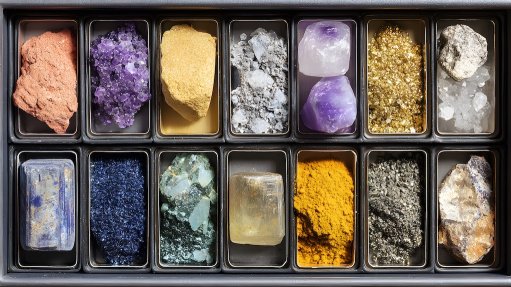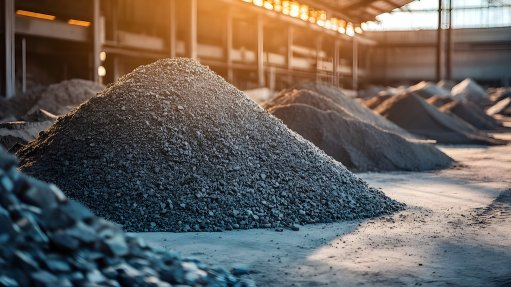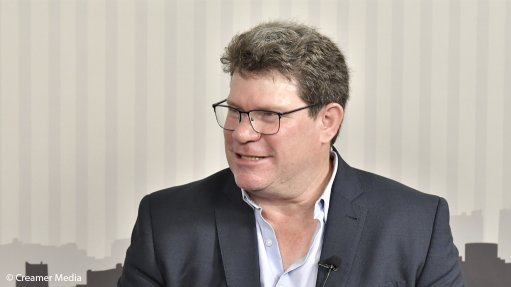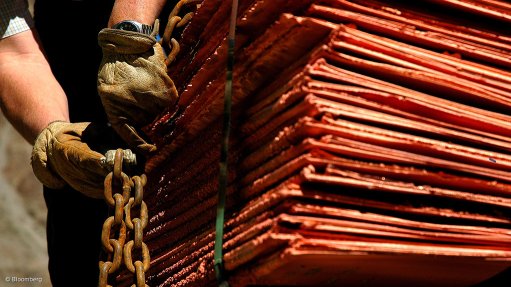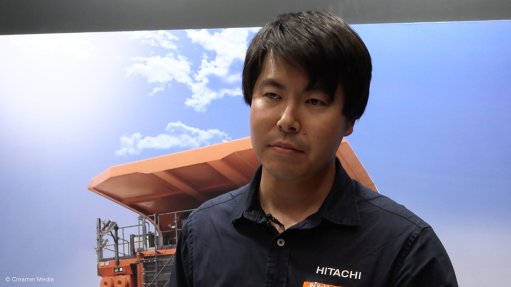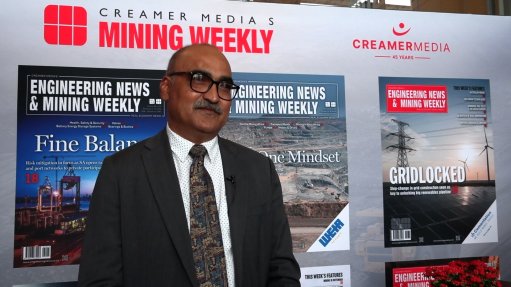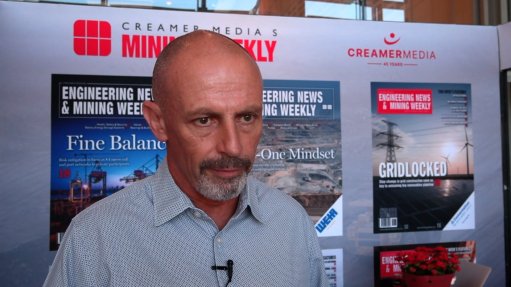Sovereign starts hydraulic mining trial at Kasiya
ASX-listed Sovereign Metals has begun a hydraulic mining trial at its Kasiya rutile/graphite project, in Malawi, as part of the ongoing pilot phase of its pilot mining and land rehabilitation programme.
The hydraulic mining trial aims to further develop previous testwork as part of the Kasiya optimisation study.
Sovereign notes that the trial is being conducted by Fraser Alexander, following successful completion of a dry mining trial in July.
The trial is expected to take about three months to complete and includes backfilling of the main trial pit, deposition and rehabilitation testwork. The company says previous testwork suggests that the soft, friable nature of the Kasiya orebody should be suitable for hydraulic mining.
Sovereign notes that the pilot phase continues to progress with oversight from the Sovereign-Rio Tinto technical committee.
“With valuable insights gained from the dry-mining approach at Kasiya, we are now entering the next phase, which includes the commencement of the hydraulic mining tests, processing and backfilling material, and progressing towards the rehabilitation phase, which we expect to take three months to complete.
“Results from the pilot phase, in particular the analysis of dry-mining versus hydraulic mining, will be fundamental for the ongoing optimisation study,” says Sovereign MD and CEO Frank Eagar.
Diversified miner Rio Tinto already holds 19.76% of Sovereign’s shares and has announced that it will invest a further A$690 360 in Sovereign, in exchange for 1.29-million shares.
Subject to the issue of these additional shares, Rio Tinto will increase its shareholding in Sovereign to 19.9%.
HYDRAULIC MINING TRIAL
Sovereign explains that saprolite-hosted mineralisation at Kasiya is predominantly homogenous, with consistent physical properties across the 1.8-billion-tonne mineral resource estimate.
The company says pilot phase data from the dry-mining trial has confirmed that no drilling, blasting, crushing, grinding or milling is needed before stockpiling material for processing into rutile and graphite products.
The temporary water storage pond, built and sealed with natural clay from excavated material, has been filled with six-million litres of groundwater, predominantly from eight water boreholes on site.
This water will be used during the hydraulic mining trial and continuously recycled from the holding cells where sand and fines fractions will be stored respectively prior to the planned deposition and rehabilitation testwork.
Sovereign says all hydraulic mining equipment is skid-mounted for ease of operation and mobility. A barge-mounted pump is used to transport the slurry from the sump to a vibrating screen.
Screen underflow is collected in a screen underpan and pumped through a stacker cyclone. The cyclone generates a -45 micron slurry on the overflow and a +45 micron sand on the underflow.
This process is designed to replicate plant conditions where these fractions are produced as tailings, and will be used in subsequent in-pit deposition testwork.
The overflow slurry is transferred to a settling pond, where it will settle, allowing for the recovery of about 34% of the water, which will be returned to the water storage pond.
The concentrated slurry, along with the sand discharge from the cyclone underflow, will be used for the next set of tests in the in-pit deposition phase.
Land rehabilitation will be a key part of the ongoing optimisation study. Sovereign says its objective is to restore land post-mining to conditions that match or surpass existing agricultural yields.
The pilot phase is expected to showcase to local communities the successful rehabilitation of land for agriculture post-mining. Sovereign says these efforts will also help the company refine excavation and backfill techniques.
Blending testwork will begin after the completion of the hydraulic mining tests. This phase will involve backfilling the seven individual test pits using various ratios of fines and sand, to be followed by soil remediation and rehabilitation testwork.
Article Enquiry
Email Article
Save Article
Feedback
To advertise email advertising@creamermedia.co.za or click here
Announcements
What's On
Subscribe to improve your user experience...
Option 1 (equivalent of R125 a month):
Receive a weekly copy of Creamer Media's Engineering News & Mining Weekly magazine
(print copy for those in South Africa and e-magazine for those outside of South Africa)
Receive daily email newsletters
Access to full search results
Access archive of magazine back copies
Access to Projects in Progress
Access to ONE Research Report of your choice in PDF format
Option 2 (equivalent of R375 a month):
All benefits from Option 1
PLUS
Access to Creamer Media's Research Channel Africa for ALL Research Reports, in PDF format, on various industrial and mining sectors
including Electricity; Water; Energy Transition; Hydrogen; Roads, Rail and Ports; Coal; Gold; Platinum; Battery Metals; etc.
Already a subscriber?
Forgotten your password?
Receive weekly copy of Creamer Media's Engineering News & Mining Weekly magazine (print copy for those in South Africa and e-magazine for those outside of South Africa)
➕
Recieve daily email newsletters
➕
Access to full search results
➕
Access archive of magazine back copies
➕
Access to Projects in Progress
➕
Access to ONE Research Report of your choice in PDF format
RESEARCH CHANNEL AFRICA
R4500 (equivalent of R375 a month)
SUBSCRIBEAll benefits from Option 1
➕
Access to Creamer Media's Research Channel Africa for ALL Research Reports on various industrial and mining sectors, in PDF format, including on:
Electricity
➕
Water
➕
Energy Transition
➕
Hydrogen
➕
Roads, Rail and Ports
➕
Coal
➕
Gold
➕
Platinum
➕
Battery Metals
➕
etc.
Receive all benefits from Option 1 or Option 2 delivered to numerous people at your company
➕
Multiple User names and Passwords for simultaneous log-ins
➕
Intranet integration access to all in your organisation






